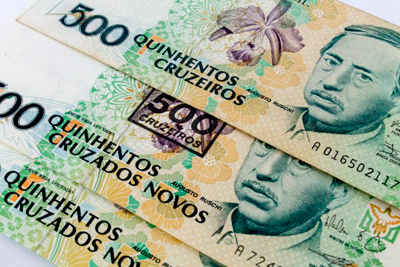Before arrangements are finalized it is reassuring to have a realistic estimate of what the journey will cost. Start with the essentials - airfares, long-distance surface travel, accommodation, food and drinks. Then add the expense of getting to the airport, airport and other taxes, excess baggage charges, taxis, tipping, local travel and car rental, insurance and entrance fees. Also allow for emergency battery supplies, postage, entertainment and some sort of slush fund that pays for all the unexpected bits and pieces. Finally, always have access to a contingency fund, usually in the form of credit, sufficient to deal with emergencies or just get home. Travellers sometimes miss flights, or may have to pay backhanders for accommodation, get on to helicopters, hot-air balloons, boats and trains. It is comforting to know that you can do such things if necessary.
 |
| Public domain image by Ariadne Ariadnerb |
Once the costs are itemized it is easy to calculate how much money needs to be taken on the trip. Prepaid flights, accommodation and services help to keep the figure down, but a significant amount of ready money may still has to be carried. How this is done is a matter of personal preference but a few observations may be helpful. Credit is difficult for anyone to steal and losses may be covered by a bank or insurance company. However, a plastic card is not a panacea. Cash is seen as more immediate and desirable in many parts of the world, but is also more attractive to thieves. Travellers' cheques are getting increasingly expensive and less convenient to use as some organizations refuse them and others levy charges on purchase, currency conversion and encashment – even though the banks insist otherwise. Travellers' cheques issued by a major UK banks may even be refused in the US. Having a foot in all camps is probably the best approach. Visa cards are widely but not universally accepted, so it may help to carry other plastic cards, US$ travellers' cheques, US$ cash and local currency. Small notes, both US$ and local, are useful for tips and transport on arrival. Keeping everything valuable in a camera bag is system that works. Losses are usually the result of leaving small bags, pouches or other items unattended or exposed. Put everything in one bag and never, absolutely never, let go of it.
Carry the numbers of travellers' cheques, together with photocopies of credit cards and lists of emergency telephone numbers (for credit cards, insurance, travel agent and 24-hour medical assistance) in both hand and checked baggage. Foreign exchange certificates should also be kept safe. On departure, some immigration authorities ask for evidence that money was legally exchanged. Black-market currency deals may look attractive, and sometimes are, but there are many potential hazards.






